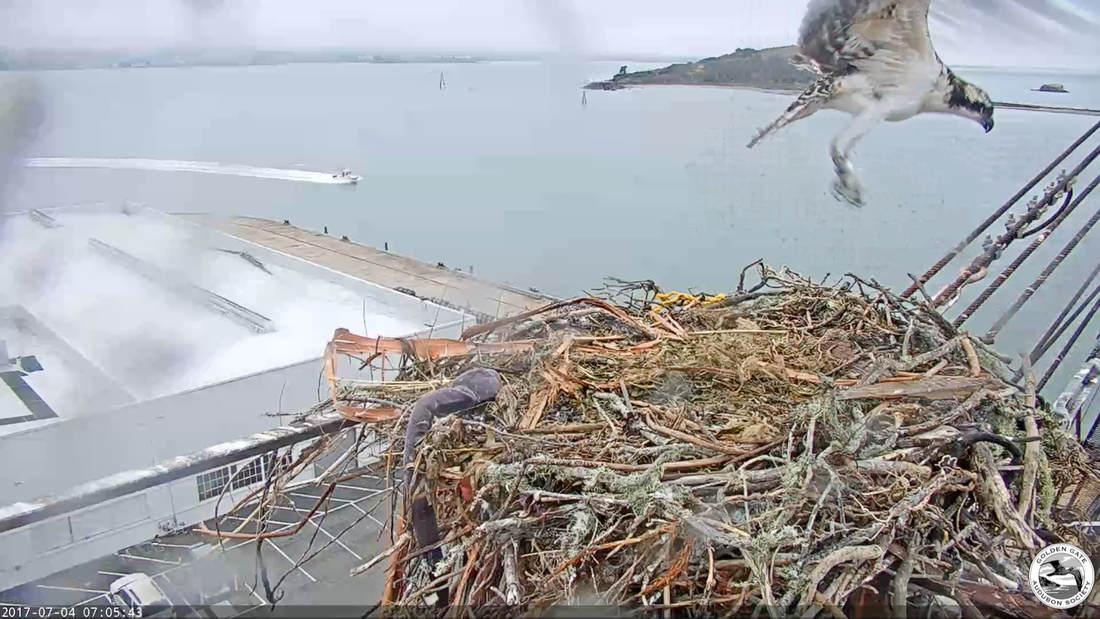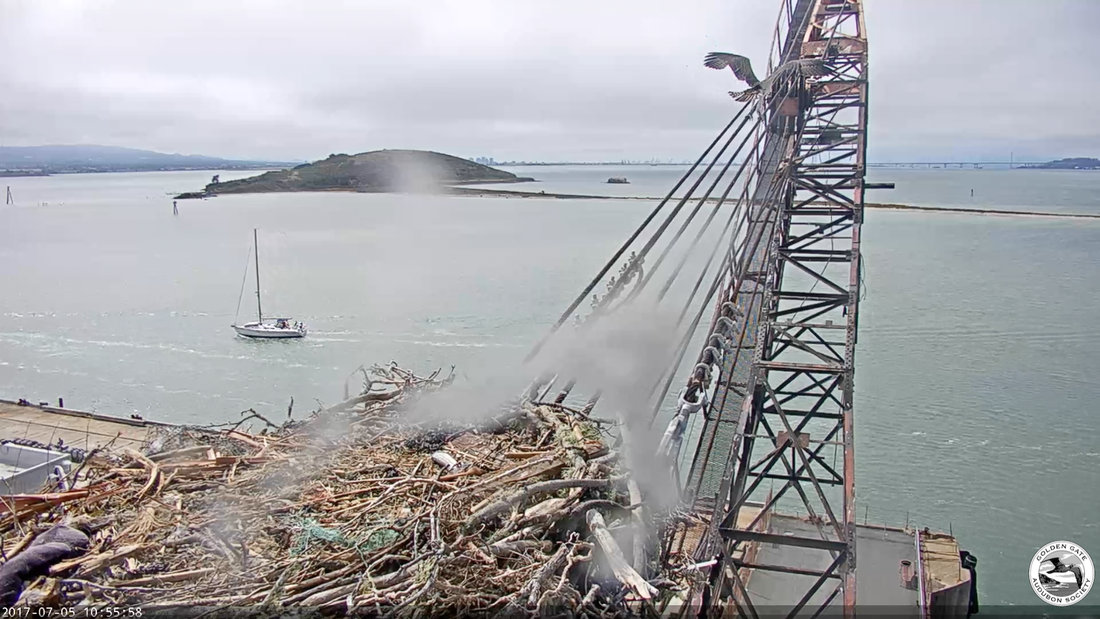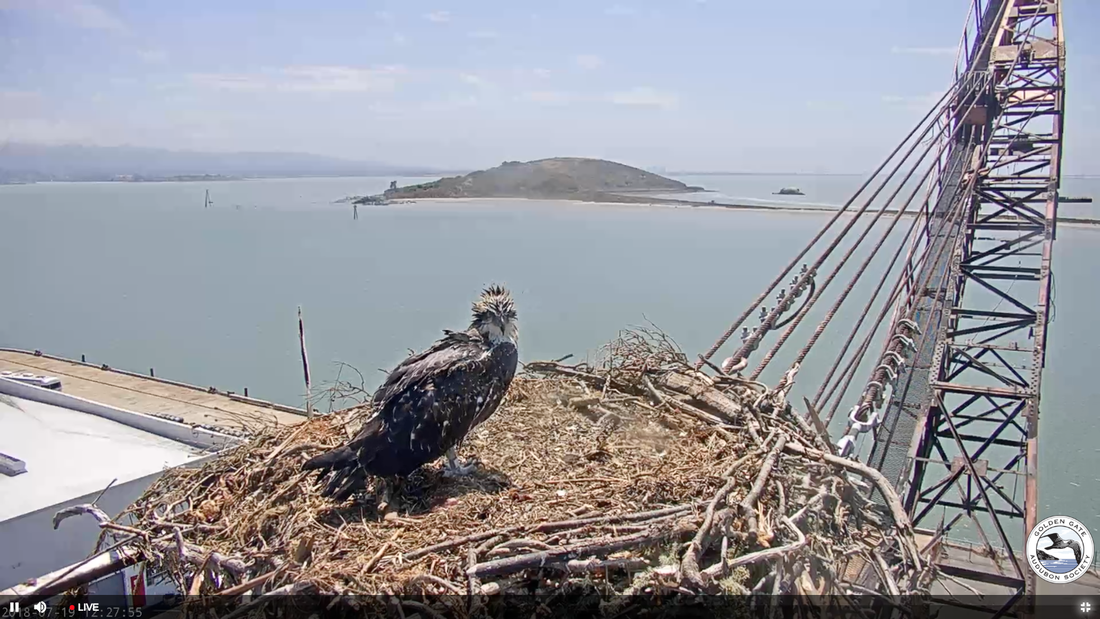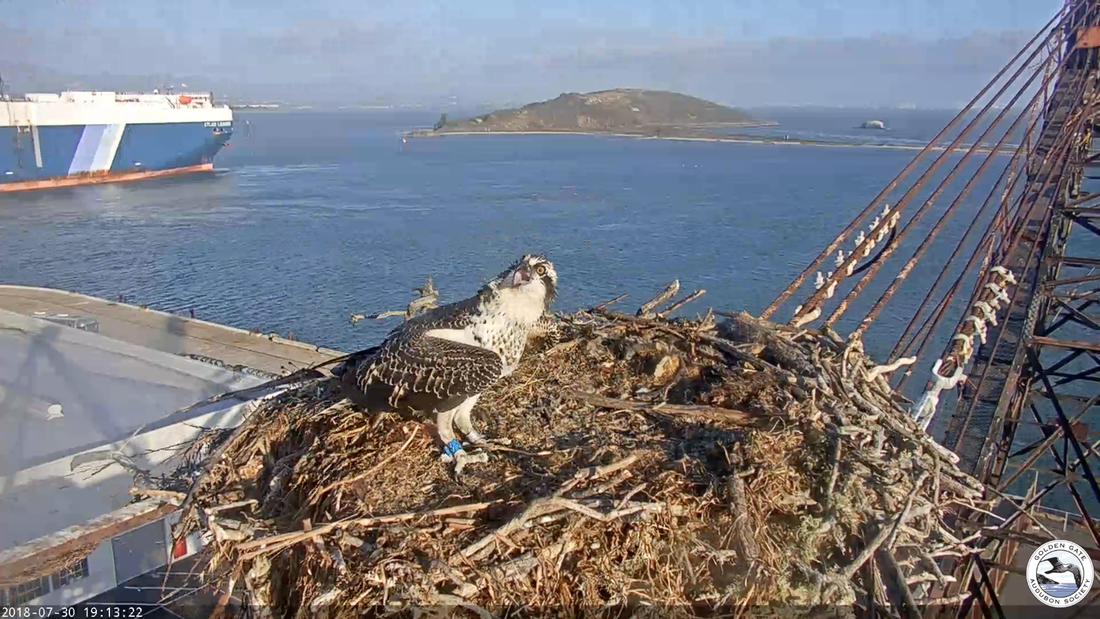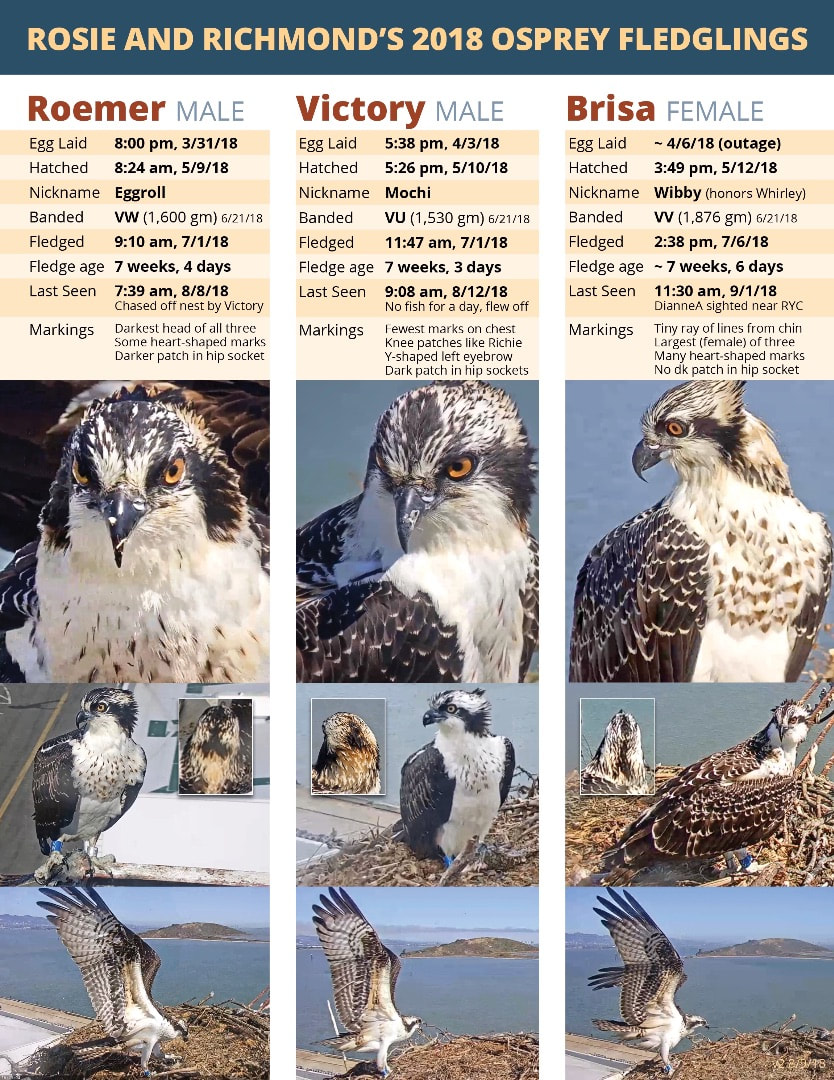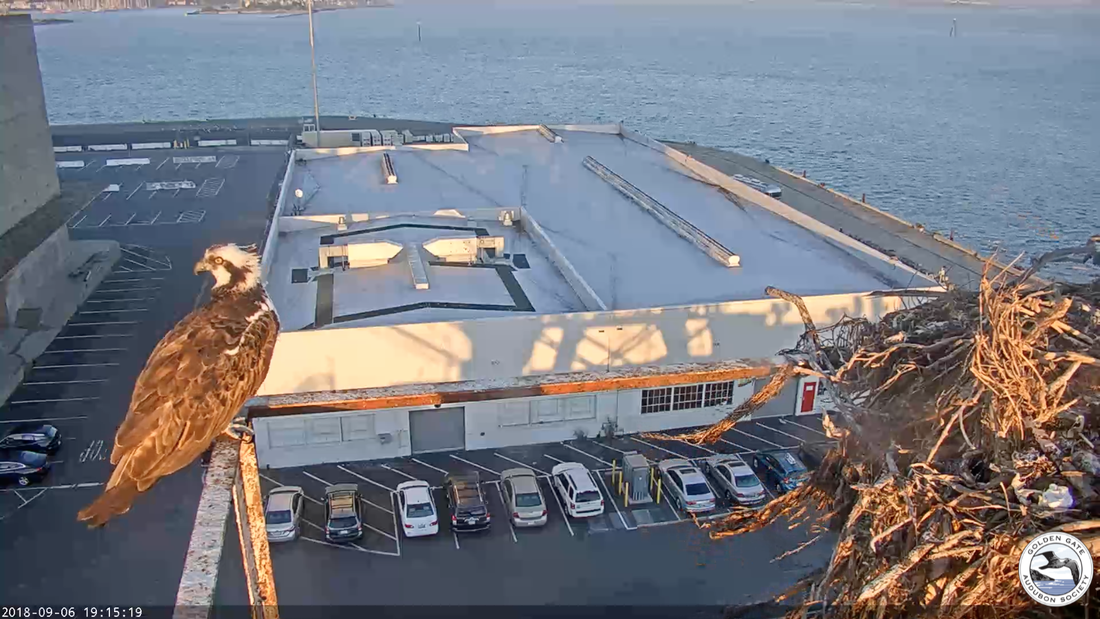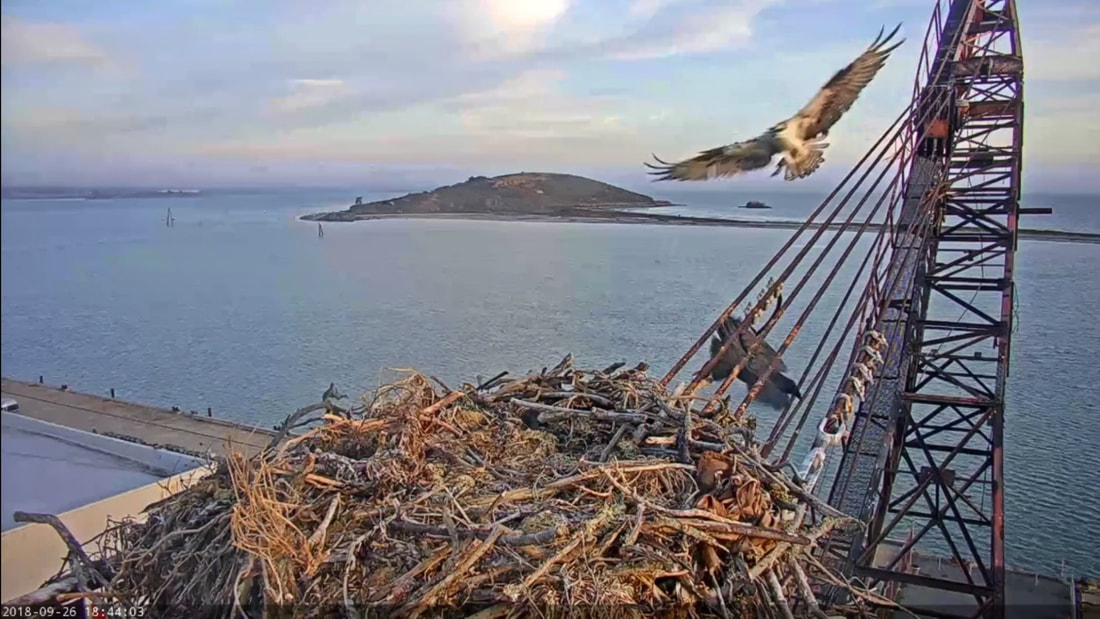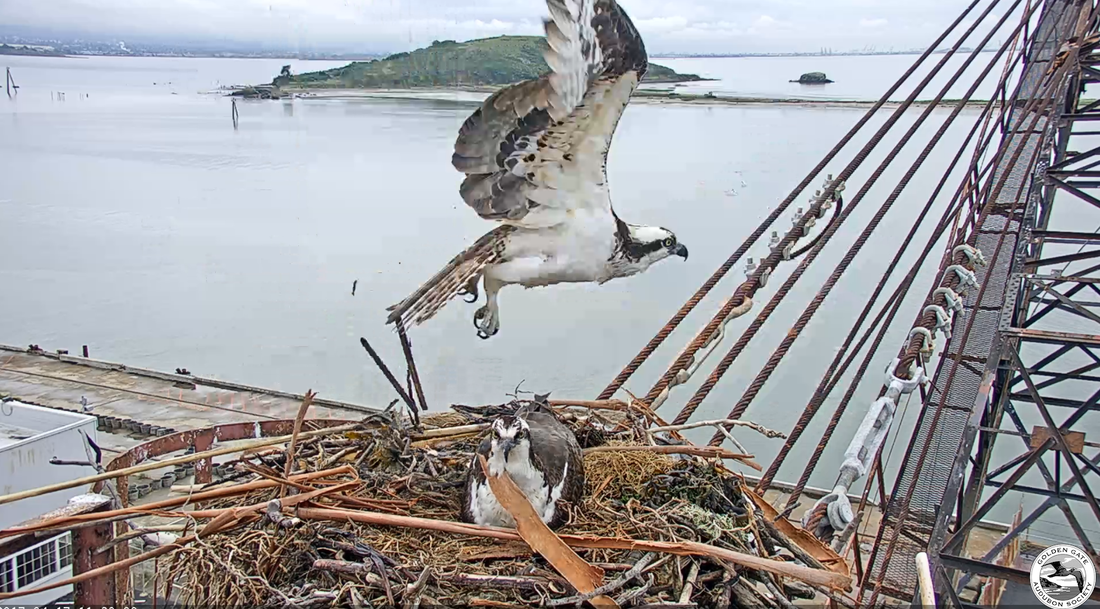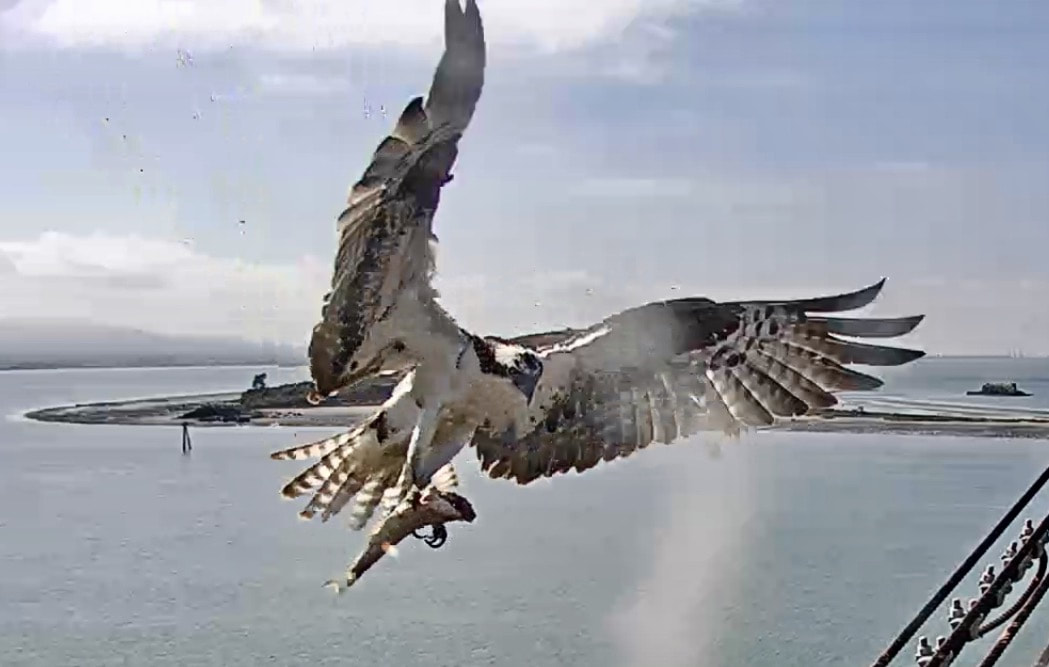After egg laying, hatching and growing, it is time for the ospreys to fledge. Learning to fly is a big part of the birds' life. For flying means independence. They can now fish for themselves, they can find new places to roost and meet other ospreys, and they can migrate. First the fledglings practice hovering above the nest, then they take short practice flights. They are not considered fledged until they fly from one point to another, away from the nest. They quickly learn to fly farther, taking practice loops out over the Bay. But then they return to the nest as they have not yet learned to catch their own food. Each day, they fly farther afield, strengthening their wing muscles and learning. They may spend all day away from the nest but usually return to spend the night and to beg for fish from the parents. Then one day, they don't return. And when the humans who watch them haven't seen them for a number of days, either on the nest or perched elsewhere in the area, it is assumed that they have migrated.
2017
In 2017, there were two osprey chicks. Whirley, the oldest and the restless one, fledged in the early morning of July 3, after the fireworks at the pavilion. She was probably not fully ready and she was found in the water by a barge crew several days later. She was taken to Wildcare in San Rafael but they could not save her. She could have injured herself while diving for fish, as she was not yet practiced. Or there could be other reasons for her injury. At any rate, her demise was not uncommon. Rivet was less restless. He liked to stay around the nest and be fed. He fledged July 5, 2017 but often returned to the nest, even when his parents were not about. He migrated around August 20 and returned in the Spring of 2019. He wears a blue band ZR.
The 2018 chicks had a different experience. They interacted quite a bit on the nest and often argued, as siblings will do. They loudly yelled for fish and fought each other for possession. The males fledged on the same day. Brisa, the female and the youngest, fledged later. Gradually, they learned to fish for themselves and soon left the nest.
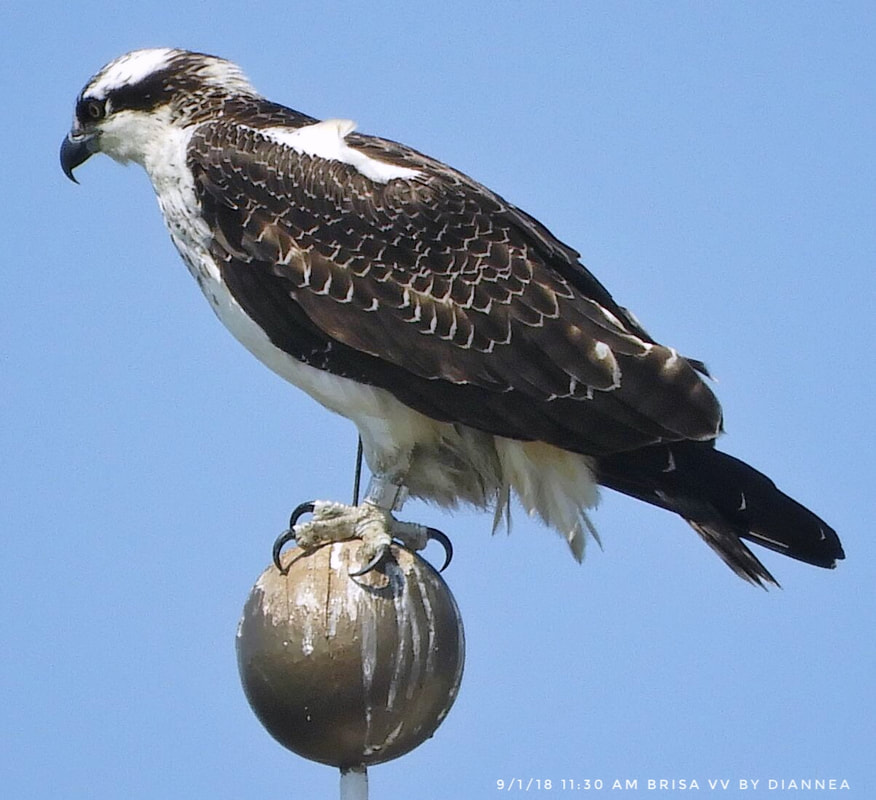 Brisa on flagpole. Photo taken by Dianne Ayres. September 1, 2018
Brisa on flagpole. Photo taken by Dianne Ayres. September 1, 2018 | Rosie’s Migration Song (tune 500 Miles) If you miss my take-off flight, if you don’t see me tonight, You will know that I have flown to lands unknown. 1000 miles, 2000 miles, 3000 miles, 4000 miles, Oh, I’m flying thousands of miles from my home. Then one day I will land on some far off Southern strand And I’ll spend the winter there in weather fair. 1000 miles, 2000 miles, 3000 miles, 4000 miles, I will fly thousands of miles to my new home But one day in early Spring, I will once again take wing And I’ll fly through sun and rain, to find my mate again. 1000 miles, 2000 miles, 3000 miles, 4000 miles, I will fly thousands of miles to come back home. If you miss my take-off flight, if you don’t see me tonight, You will know that I am flying my way home. -MW2018 | Osprey Are Born to Fly Osprey are born to fly To soar in wild blue sky. They grow, they fledge, they mate Lay eggs, raise young, migrate. And when they say good-by, They do not cry, They do not wonder why. But you and I- We were born to laugh and cry. We worry and we fret, We doubt, hope and regret. And when we say good-by We sigh and cry And forever ask why. So when the osprey fly, Let them soar in wild sky If you must, then cry If you must, wave good-by, But then let them fly free Away from you and me, Free just to be. MW 2018 |
